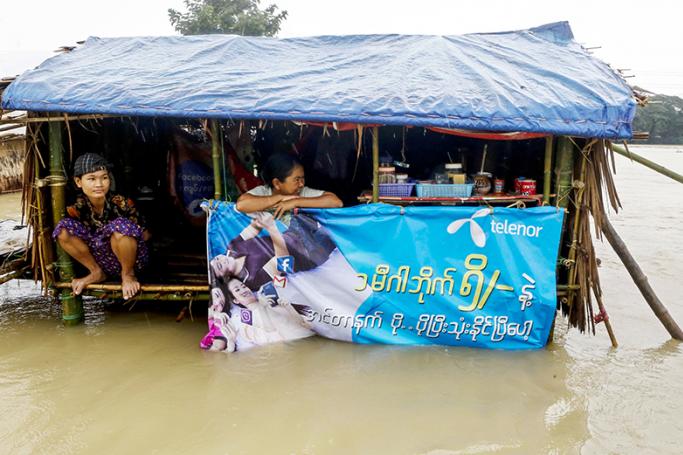In response to widespread flooding that has hit several parts of Myanmar since late July, the European Union (EU) is providing 200 000 EUR (more than 280,000,000 Kyat) in humanitarian funding to assist the most affected communities.
This aid will directly address the urgent needs of 50,000 individuals who have been heavily impacted across 21 townships in the five worst-hit regions of the country, namely Ayeyawaddy, Bago, Magway, Mandalay and Sagaing. The emergency relief action, which began on 1 September, is scheduled to run until the end of November, according to a press release on October 3.
With the funding, the Myanmar Red Cross Society (MRCS) is delivering hygiene parcels, water purification tablets and jerry cans to the affected population. Unconditional cash grants are also being provided for the most vulnerable, particularly agricultural daily labourers who are now out of work and small land holders whose crops have been destroyed.
This funding is part of the EU’s global contribution to the Disaster Relief Emergency Fund (DREF) of the International Federation of Red Cross and Red Crescent Societies (IFRC).
Myanmar started experiencing a series of torrential rains in early June as the annual monsoon season began. The incessant downpours caused large-scale flooding in numerous areas throughout central and northern regions. According to the latest data released by the Relief and Resettlement Department (RRD), close to half a million people were displaced across the country, with the central region of Magway being the hardest-hit. The floods have also resulted in the contamination of water resources such as ponds and wells in many localities. In some places river erosion has forced many families to move from their homes.
With the rains expected to persist at least until the end of the month, the European Union's humanitarian experts are closely monitoring the situation.
You are viewing the old site.
Please update your bookmark to https://eng.mizzima.com.
Mizzima Weekly Magazine Issue...
14 December 2023
Spring Revolution Daily News f...
13 December 2023
New UK Burma sanctions welcome...
13 December 2023
Spring Revolution Daily News f...
12 December 2023
Spring Revolution Daily News f...
11 December 2023
Spring Revolution Daily News f...
08 December 2023
Spring Revolution Daily News f...
07 December 2023
Diaspora journalists increasin...
07 December 2023
Landslides kill 12 as monsoon batters refugee camps












